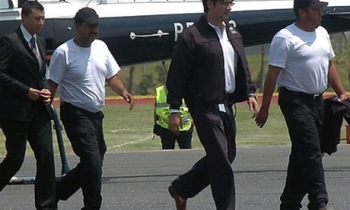Search supremo Google is to gain a toehold in the emerging market of video blogging’ after co-founder Larry Page this week vowed to archive online movie clips.
Speaking to a conference in San Francisco, the internet boss said he would upload short visual clips in the next few days to the search site’s existing servers.
He said that the experiment into video blogging or vlogging - invites members of the public to submit their own homemade films to audiences around the globe.
Responding to the obvious, Page admitted that he had some concerns over the content of the clips people were likely to send, but said he doubts it will be a "big issue."
Google’s affair with the Web log has already created Google blog, which claims to give an informal insight into the workings of Googleplex, while the company has also acquired its own blogging firm - Blogger.com.
Since the acquisition in 2003, Google has made a beeline for film and visual entertainment as part of a direct response to the larger entertainment section offered by search rival Yahoo.
Last month, Page and co-founder Sergey Brin unveiled Google Movies, which tracks down film quotes, titles, cinema locations and tickets.
The Google founders hope that by dipping their toe into the vlogging’ market there will be an opportunity to test their Movie service, which is currently a prototype version.
In a related move, Page and Brin last month acquired web analytics firm, Urchin, which offers web site owners a better understanding of their users’ experiences, optimization of content and effective tracking of marketing performance.
Google says it plans to open up the tools to website owners so they too can optimise content while reaping top returns from their advertising spending.
Meanwhile, the official announcement that the company will move into vlogging is yet to be made, though it is expected within the next few days.
Jeff Jarvis, an early champion of vlogging and founder of politics and media blog Buzzmachine, says the growing trend has some exciting possibilities.
"Vlogs are weird," he told Time magazine, "[they are] a new kind of way that people can document their lives. It has the potential to be the farm team for new talent used by big mainstream media."









